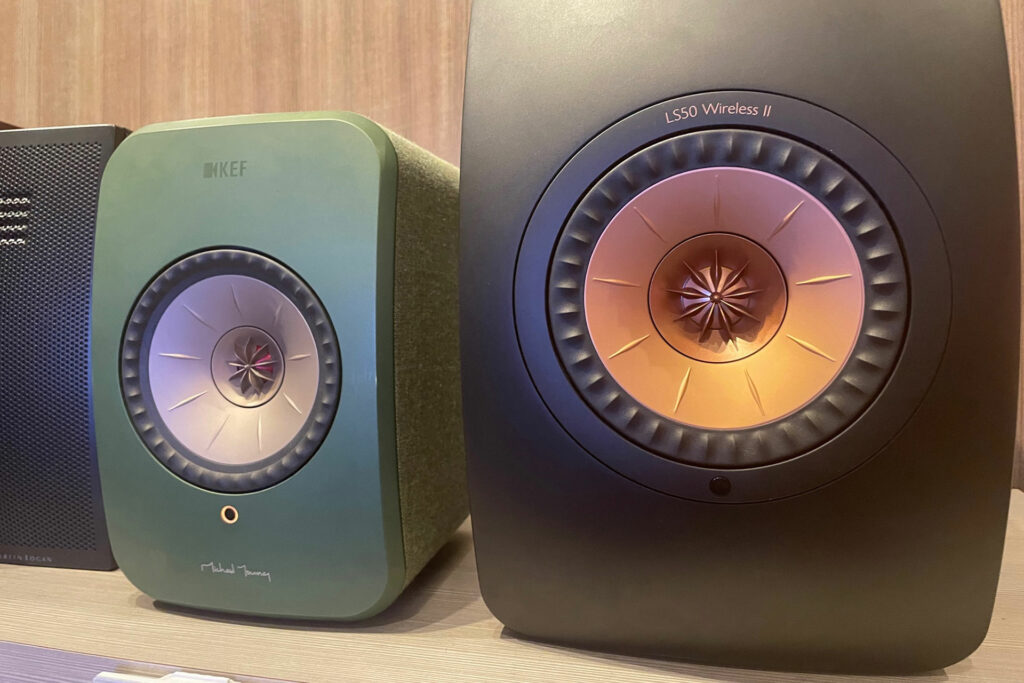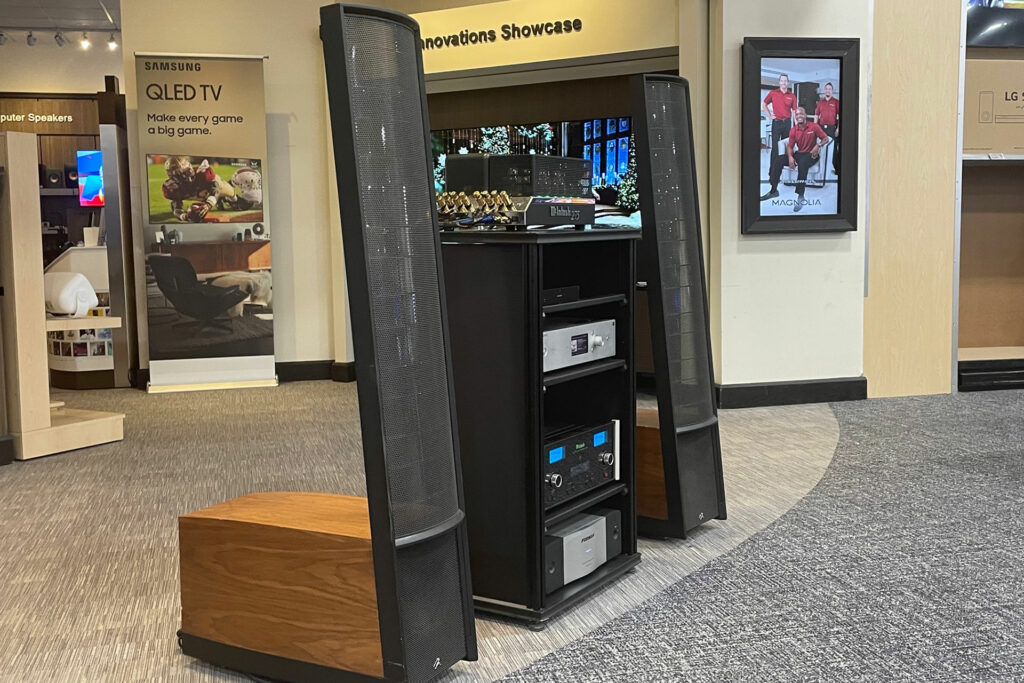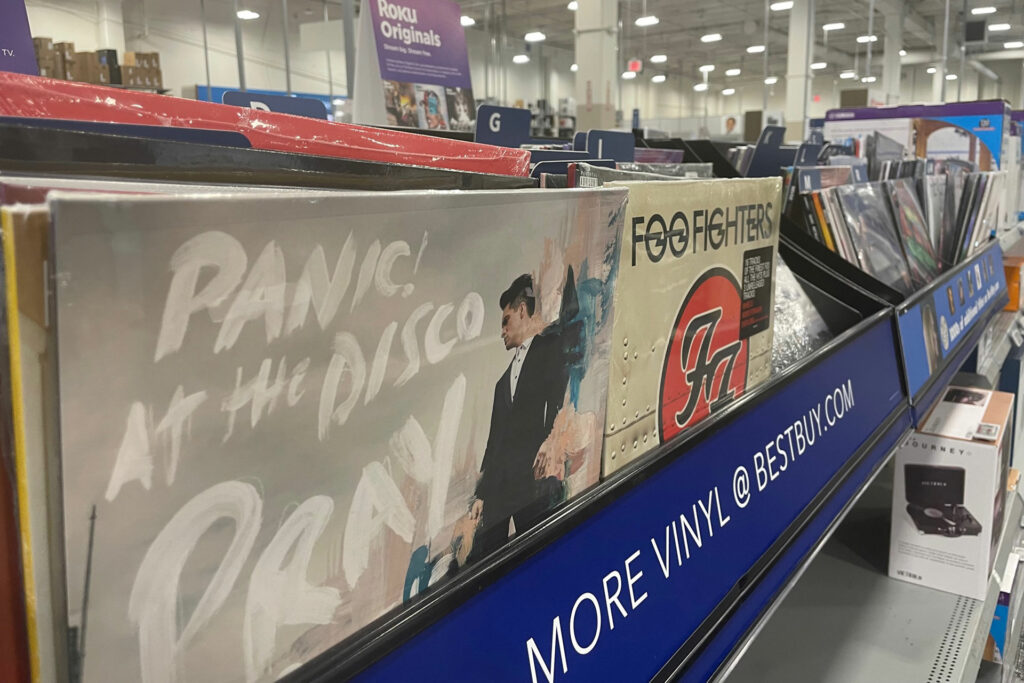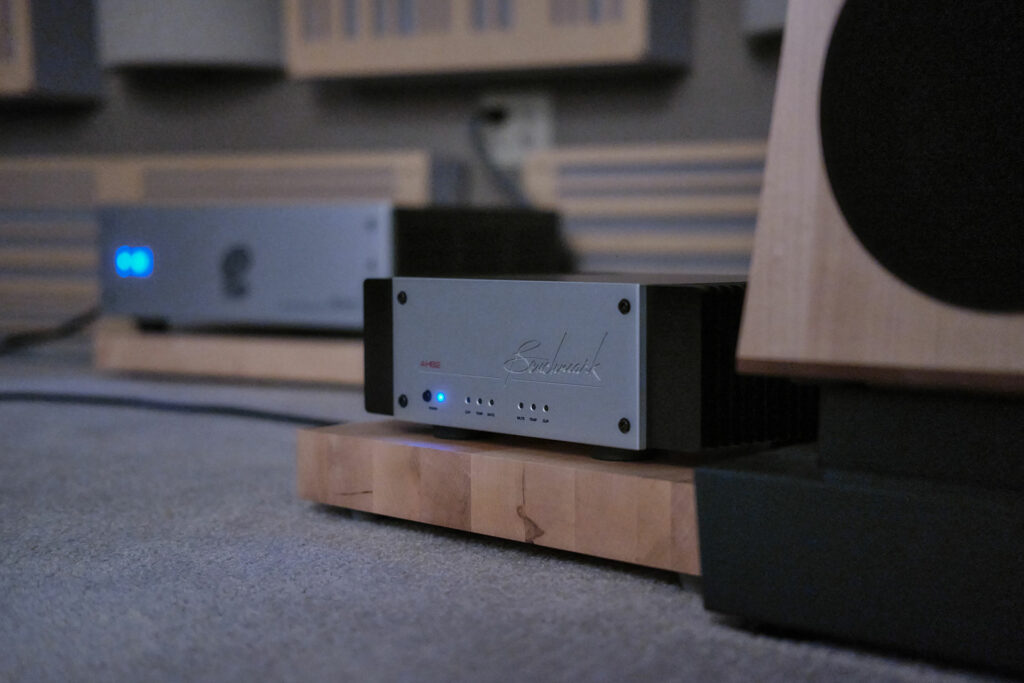Last week, I spoke with one of my high-end audio dealer friends, as he was in need of rightfully venting a little bit after a highly organized client demonstration of some ultra-expensive audiophile electronics ended up in an unsalvageable situation. This audiophile retailer had arranged for a new, apex predator client to travel in from out of state to potentially buy a pair of roughly $50,000 audiophile amplifiers. That’s a great sale for any audiophile salon, including this one, and that got the owner to schedule out hours on a Saturday to accommodate the incoming client and his professional musician wife at his store. The couple owns a very respectable audiophile system already. However, the current electronics are almost 30 years old despite, their significant pedigree. The time was right for an upgrade, which seems pretty reasonable, especially considering how important music is in their home and for their family, so they got in the car and drove across not one but a few state lines north in search of better amplifiers.

The Saturday afternoon demo started off well, and the client wanted to purchase the amps after at least an hour of auditioning. Where things went off the rails like a Crazy Train was when the husband asked the retailer, “How much did you pay for these amps?” Respectfully, that’s none of his business on one level, and pretty easy to figure out if you been involved in the hobby for 30 years, as this man (couple) has. His next salvo was a deal-killer, when he said, “I can offer you five percent above retail,” which is a total non-starter for any dealer who understands the value of having an A-list audiophile product franchise, like the one that we are talking about (and I am not naming – on purpose). Simply put, audiophile manufacturers say that they can impose MSRP programs and terminate dealers over not following them, but in the real world, such situations are complex to implement, and it’s unclear how legally solid the argument is if anyone was ever to test it. The reality is that an audiophile manufacturer who wants to end a relationship with a dealer can do so when they pretty much want, and for any reason. If they want the dealer to end things, the manufacturer can permanently delay an order, having it never ship, thus creating a major problem and loss for everyone involved, but the message would come through loud and clear after a few months. None of these outcomes are good. None of these outcomes make the hobby more fun. None of these outcomes end in a win for any of the parties involved.
As you can imagine, my retailer friend wrapped up the demonstration pretty quickly when the consumer failed to even remotely understand or respect his business model. Later, on the phone when recapping the situation, we discussed possible sales strategies, and I think that I might have pulled the plug on this proposed big-dollar audiophile deal even faster. Ultimately, I agree with his strategy, as he gave the consumer enough time to come around, even though that’s not what happened. Perhaps this level of banana market bullshit might be culturally acceptable in other parts of the world, but what he was asking for as a consumer of luxury goods isn’t going to work anywhere or anytime with a respectable retailer, other than a perhaps during a bankruptcy-inspired fire sale.

Sometimes it takes looking at things through the other party’s optics to get a better perspective.What the customer was suggesting could very likely cost the retailer the line, which would be like a kitchen appliance store losing Sub-Zero or Viking. That outcome would hurt the retailer badly, if not fatally. Thirty years ago, as a young audiophile salesman in Beverly Hills, I received a call from an enthusiastic Asian man on the phone looking to place a huge order for Mark Levinson electronics. When I say huge, it was hundreds of thousands of dollars even back then. Ten reference Mark Levinson No. 31 transports. The same number of reference DACs. Five pairs of top-of-the-line No. 26 monoblock amps, paired with five No. 38S reference preamps and 10 No. 38s, less expensive (but still super-cool at the time) preamps. There were to also be about 10 350-watt Mark Levinson stereo amps (known then as the No. 333), and a few smaller amps, too, thrown in for good measure. The problem was the terms of the deal. The audiophile transhipper wanted to take me to a famous Hollywood eatery (the place where, years later, I would meet my one and only Beatle: Ringo), The Ivy, for dinner. Even back then, I could smell that something was fishy in Denmark with this deal, despite inexperienced me lusting to make a massive, six-figure sale at 19 years old. I asked him about pricing and we got into the meat and potatoes of the issue. He told me that he was willing to pay seven percent above retail for this massive collection of gear. When I pressed, I learned that the gear was going to Asia for resale, which basically ignored the Madrigal (the parent company of Mark Levinson at the time, thus before Harman or the now Samsung-owned version of Harman) international distribution model. He also mentioned that a somewhat nearby competing dealer, who sold Wilson and Mark Levinson, had done deals like this in the past. Upon speaking with my boss, we decided to pass on the opportunity, as he explained to me the complexities of the deal in ways that Music and Business school simply couldn’t. The other local dealer who did deals like this was terminated not long afterwards. Doing the right thing here paid clear benefits later, too. My last sale working for this Beverly Hills audiophile retailer was a pair of Wilson WATT Puppy speakers, a Wilson Audio WOW subwoofer, and a Bryston amp to power said sub, along with a full complement of Mark Levinson electronics and pretty expensive Transparent Cable. The whole system was about $100,000 (all at retail price), and it was being sold to an executive from Fuji Film, who was legitimately moving from Los Angeles back to Japan. Because we did the right thing before and we always were honest with our manufacturers, we were allowed to sell the system that was designed to end up overseas. The only caveat was that if the gear needed warranty repair, it needed to come back to the U.S., or the client needed to pay for the repair in Japan outside of the warranty. Everybody agreed, and everybody won in the deal. I told this crazy tale of high-dollar audiophile hijinks from the long-long ago to my friend to remind him that he, without question, did the right thing.

Why Do We Really Need Audiophile Retailers Anyway?
There is a somewhat disturbing trend among audiophiles that shows them not wanting to interact with local dealers as much as they had in the past. Without question, some dealers can be hard to deal with, and by no means should they be rewarded with your business. Others spend a pretty penny stocking or “flooring” pretty high-end audiophile gear that gives you access to hearing great-sounding gear in a nearby location. That can be a really good value.
A good audiophile dealer looking to grow his or her business can offer a lot of valuable perks that can benefit you in the hobby. I know of a few examples that my aforementioned dealer friend has given people (even slightly out of warranty) audiophile gear needing repair, loaner electronics at no cost. In one case, a $30,000 Esoteric DAC needed to go back to Japan and the repair took four solid months. The dealer got the client a comparable DAC to use at his cost while the Esoteric was painstakingly repaired roughly 9,000 miles away. Good dealers are always able to find creative ways to get customers high-value trade-in prices when upgrading. Even with Audiogon.com, U.S. Audio Mart and eBay.com available to us on the Internet, it is a hell of a lot easier to upgrade your current gear when your trade-in process is totally painless and not so painful financially. I’ve seen other dealers, when working with their favorite audiophile clients, actually get other products from brands that they don’t sell from other authorized dealers. Mr. Audiophile might want a new amp that’s all the rage from XYZ Audio. If Mr. Retailer doesn’t want to fully commit to the line, often a third party can be brought in to make a win-win-win situation. Creative dealers will do that for loyal and mindful customers.
There are some things that are better bought on the Internet, but as recently as last week, I drove over to my custom installer’s West Los Angeles warehouse to get a BNC-RCA adaptor (there’s no Radio Shack anymore, and you can forget Best Buy or Guitar Center for something like this) for a same-day solution that helped me get a streamer/DAC review done successfully. That’s a small example, but they all add up to make your experience in the hobby better.

Four Behaviors to Avoid When Building a Great Relationship With Your Audiophile Retailer …
- Don’t low-ball your trusted dealers on price. You don’t have to have a degree from a University with a name ending in “Institute of Technology” to know roughly how much margin is in audiophile electronics, floorstanding speakers or audiophile accessories. I’ve written about how asking for 20 percent off (read the featured article here) could be putting your dealer out of business. The guy who traveled to hear the $50,000 monoblock amps asked for at least 35 percent off. The dude who wanted all of that Mark Levinson gear was dictating an also unacceptable 32 percent off discount. Not only will that get you potentially dropped by the manufacturer, but the retailer, in the real world, will likely lose money on a net level in such a deal.
- Don’t shop out of state to save sales tax. In many states, this is illegal, and the state expects you to pay your sales tax anyway. I don’t think there is one audiophile who hasn’t procured some gear from an out-of-state locale, but retailers like SoundEx in Philadelphia (back in the day) existed on the stock 20 percent off deal. earning the sale by saving New York State sales tax for many of their nearby but out-of-state customers. That was the core business model of that once-mighty, now-forgotten retailer back in the day, as the sales tax and “free weekday delivery” to the greater New York City area was the icing on the cake that closed millions of dollars in audiophile sales.
- Try to avoid being disloyal, even though it is unlikely that any dealer sells every single product that you will want for your audiophile system. By no means do you have to buy everything for your audiophile system from the same retailer, but showing him or her that you care to support them goes a long, long way to building a strong relationship with them over time. It is completely reasonable and fair for you to say, “I could have gotten this used or cheaper somewhere else, but I bought this from you. I want to support your business.” This is the sweetest music to an audiophile retailer’s ears.
- Don’t be stingy with the new client recommendations. One of the best things that you can do to support your local AV dealer is to send them some new business. People know that you are a well-educated customer of consumer electronics. What if they are moving into a new house? They might not need a pair of Magico speakers or some $10,000 Krell amps, but what if they need a Sonos setup for whole-home audio, a few TVs and some limited smart home control like HVAC and/or shades? That can be a nicely profitable sale that you get credit for bringing in. Maybe the dealer gives you a credit (smart move on their part) toward your next upgrade? Or they find a way to get you a better trade when upgrading your next component? There are a lot of ways to return the good vibes.
Some Final Thoughts on Your Relationship with Your Local Audiophile Dealer …
While some audiophile stores are simply not worth supporting, when you find a good one – it is easy to see their value over time. That is a relationship that many are willing to potentially travel for, as well as nurture. The upside is just too big to ignore.
As you can see, honesty is always the best policy, but seeing things through the optics of others is one of the fastest ways to deliver a win-win outcome. One of the best former clients that I had over the years from the audiophile cable world said it really well when she reminded me, “This hobby is about fun first and foremost!” She was right then, and remains right now. Having a solid working relationship with your local dealer(s) is a fast track to having more fun in the audiophile hobby.
Tell us about your relationship with your local dealers? Have you any horror stories? Do you have any examples of stellar customer service? Do you travel to work with a top dealer or salesperson? We want to hear from you in the moderated comments. Your opinion makes this article even better and more valuable to the audiophile community.




I think you may mean different things by the term “retail” than I do. I would pay retail. Not more. Possibly less. When buying a car, it is customary to come in quite a few percent under MSRP.
But your use seems to suggest audio equipment often sells for quite a bit above MSRP.
Can you expand?
According to Google AI 15-20% is considered typical margin for luxury retail, and consumers have been conditioned to expect paying something less than that on almost everything else they buy. If your business model depends on a 30-40% markup to be viable (whether to keep doors open or brand relationships stable) then you’re in a tough spot. Additionally, while much of what you wrote makes sense, there are so few local dealers left it’s practically impossible for most people to have the kind of relationship with one where the benefits you mentioned can be a lived reality. There are many examples of online businesses selling out of region and significantly under MSRP with no apparent consequence, not to mention the games being played with 3rd party sellers on Audiogon, USAudioMart etc. who are flipping gear for less than MSRP in cahoots with a ‘reputable’ dealer. This is yet another factor that leads a prospective buyer to expect a 15-20% discount and to feel like a chump if they don’t get it. It sounds like the big-time client you mentioned didn’t buy the amplifiers, but he almost certainly found another dealer who would play ball. The dealer who ultimately satisfied him and a business model that requires a 30-40% margin to maintain image seem like the real problem.
20% take-home is generous. Open a business and see what happens. Costco gets 14-18% take-home. Their inventory changes 16 times a year, which is amazing. No High-End store has turns like that.
Costo (with help from Vizio) is how the home theater business became “white goods” product. Meaning too low of margins.
Flipping them 16x per year helps but that’s the ONLY WAY that would work.
Specialty AV needs more margin as you well know. 🙂
Surely you meant “5% above wholesale” and not “5% above retail” when you described these customers strong-arming the dealer for a bargain. 5% above retail would be akin to tipping the dealer!
Correct!
Awesome. This is a very well-written article. At last, someone expresses how hard it is to keep a retail store open. The cost of doing business has gone up so much. My Dodge/Sprinter van used to cost $1800.00 in yearly insurance. Today, it’s $8000.00 per year. My Rent was .35c a sq ft when I opened the store. It’s $3.00 a sq ft per month. Thank you for your support and championing brick-and-mortar stores.
WOW on the increase in prices.
I’ve got the same thing here at my house. We are about to get dropped by State Farm as will 70% of the people who live in my Zip Code. That is after $650 increase PER MONTH in home owners insurance.
Brick and mortar stores are key to “planting the seeds” for us to dream of owning the gear that you sell (big ticket stuff). Without dealers like you, we all will suffer.
Some readers are down on their dealers and I get that but it is important to support the ones who are the best – like you.